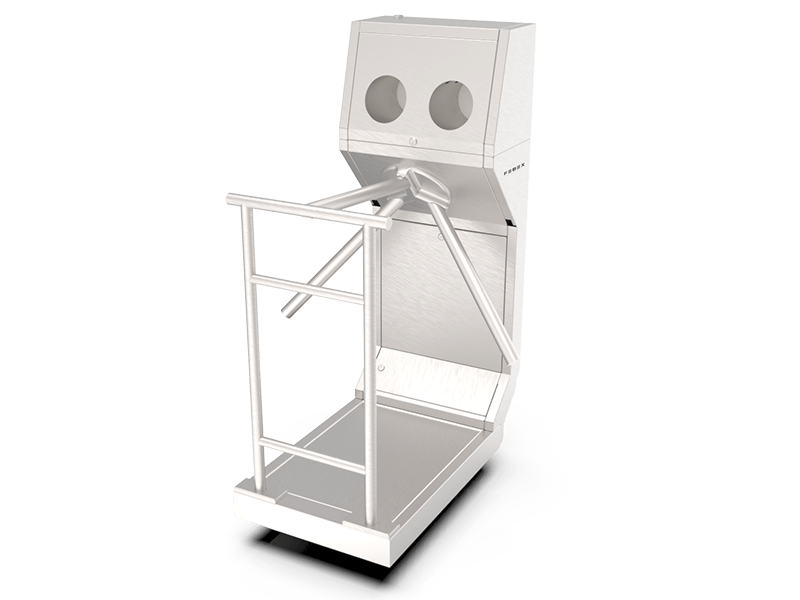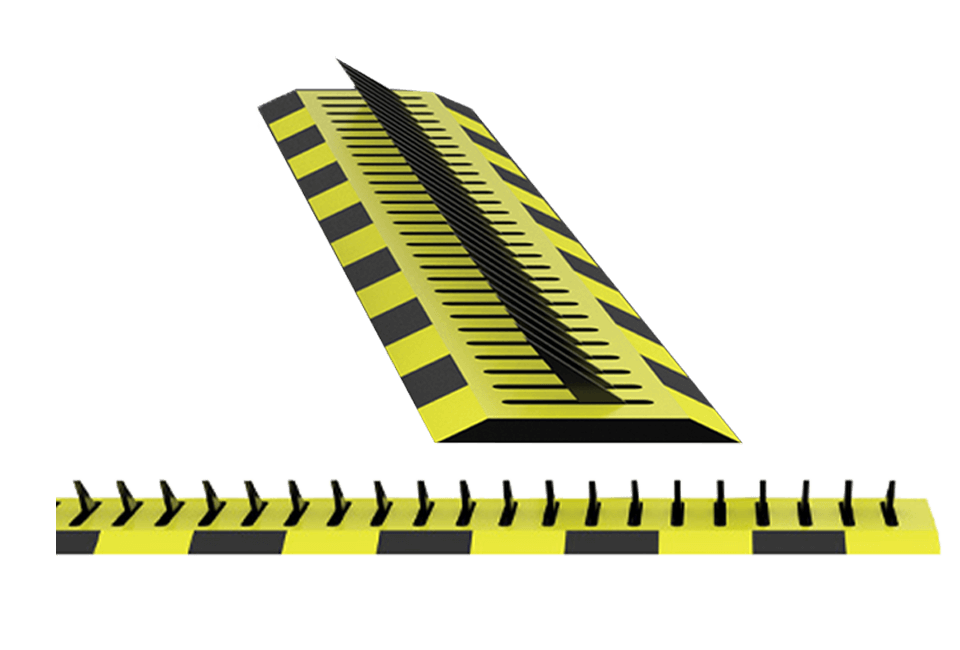
Hygiene shoes Gate (FX512H)
Febex Hygiene shoe Gate (FX-G512H), or flap turnstile gate is an efficient, assuring, and quality access control solution for entry/ exit controls in various working places and public places.

Hygiene shoes Gate (FX501H)
Febex Hygiene Hands Gate is an efficient, assuring, and quality access control solution for entry/ exit controls in various working places and public places where disinfection is a priority.
Febex The Emergence of Hygiene Gates: A Modern Approach to Public Health
Introduction
In a world increasingly concerned with public health and hygiene, innovations in technology and infrastructure are being employed to combat the spread of diseases. One such innovation that has gained prominence in recent years is the concept of “Hygiene Gates.” Hygiene Gates are a novel approach to maintaining public health by providing a seamless and contactless means of ensuring personal hygiene and sanitation, especially in high-traffic areas such as airports, hospitals, and public transportation hubs. In this article, we will explore the concept of Hygiene Gates, their significance in the context of public health, and how they are changing the way we approach hygiene and safety.
What Are Hygiene Gates?
Hygiene Gates are advanced gateways equipped with a range of technological features and hygiene protocols to minimize the risk of disease transmission. These gates are strategically placed at the entrances and exits of various public spaces and serve as the first line of defense against the spread of infectious diseases.
Key Features of Hygiene Gates:
- Temperature Screening: Many Hygiene Gates are equipped with thermal imaging cameras to monitor individuals’ body temperatures. This helps identify individuals with elevated body temperatures, which can be an early sign of illness.
- Hand Sanitization Stations: At the entrance and exit of these gates, individuals are prompted to use automated hand sanitization stations. These stations dispense hand sanitizers or disinfectants in a touchless manner, ensuring clean and germ-free hands.
- Facial Recognition and Biometric Verification: Some Hygiene Gates incorporate facial recognition technology, which can verify the identity of individuals while also detecting the use of masks. This feature is useful in monitoring and ensuring compliance with mask mandates.
- UV-C Sterilization: In some cases, Hygiene Gates are equipped with UV-C sterilization units. When a person walks through the gate, UV-C lights can disinfect the individual’s clothing and personal belongings, reducing the risk of contamination.
- Social Distancing Monitoring: Sensors in Hygiene Gates can track the distance between individuals and alert them to maintain proper social distancing.
Significance in Public Health
Hygiene Gates have gained significant importance in the wake of the COVID-19 pandemic, but their relevance goes beyond this particular crisis. They offer numerous benefits for public health:
- Disease Prevention: By screening individuals for elevated body temperatures and promoting hand hygiene, Hygiene Gates can help prevent the spread of infectious diseases, not just limited to COVID-19 but also the flu and other contagious illnesses.
- Enhanced Hygiene Awareness: These gates serve as a constant reminder to individuals to maintain good hygiene practices, even when they are in a hurry or distracted.
- Rapid Identification of Potentially Infected Individuals: The temperature screening feature can quickly identify individuals who may be symptomatic, allowing for immediate isolation and testing.
- Reduced Surface Contamination: Automated hand sanitization and UV-C sterilization can significantly reduce the risk of surface contamination, thereby reducing the chances of disease transmission.
- Data Collection and Contact Tracing: Some Hygiene Gates can collect data for contact tracing purposes, aiding health authorities in tracking and managing outbreaks.
Challenges and Concerns
While Hygiene Gates hold great promise in the field of public health, there are some concerns that need to be addressed. These include:
- Privacy: The collection of biometric data through facial recognition and contact tracing capabilities raises concerns about individual privacy and data security.
- Cost: The installation and maintenance of Hygiene Gates can be expensive, especially for smaller businesses and public institutions.
- Technological Challenges: The effectiveness of these gates depends on the accuracy and reliability of the technology employed. Any technical glitches or false readings could pose issues.
Conclusion
Hygiene Gates represent a modern approach to public health, leveraging technology and innovative infrastructure to safeguard individuals from infectious diseases. While they have gained prominence in the context of the COVID-19 pandemic, their potential benefits extend to various public health challenges. As the technology continues to evolve, it is crucial to strike a balance between the advantages they offer and the concerns related to privacy and cost. Hygiene Gates are likely to remain an essential tool in the ongoing battle to protect public health in an increasingly connected and crowded world.

